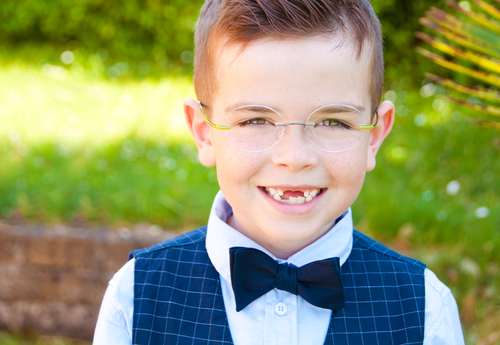5 Tips for Planning a Special Needs Birthday Party

Planning a special needs birthday party is really not that much different than planning a birthday party for a child without special needs. For either child you should take into account all of their likes and dislikes, with the goal of having as many of their favorite things and as few (if any) of the things they don’t like, as possible. If you can, involve your child in the planning so that they can help you make decisions related to their big day.
Of course, don’t involve your child if you know that they’re going to ask for something totally unattainable. You know, like having Taylor Swift or a real dinosaur at their party. Or “tie-dyed” cupcakes that involve separating the batter into six different bowls, coloring them with different food dyes, layering each color into each individual form in the cupcake pan, and then baking them, all the while muttering that you’ll never, ever do it again—this may or may not have been me.
I’ve learned over the years to think about my kid’s personality and come up with a potential theme that I think they’ll like, and then run that by them. Some kids like choices and some don’t, so factor that into consideration too. You can easily make the choice for them if they’d prefer that. However, don’t make it a surprise if your child absolutely, positively panics in the face of surprises.
Here’s some more advice for throwing a party for your special needs child:
#1 – Keep the Party Small
If your child gets easily overwhelmed in crowds or has sensory issues such as aversion to a lot of noise, it’s best to keep the party small. Depending on the type of party you have, more children can also mean more waiting, as in waiting their turn to play a game, waiting in line to get food, etc. Most children, on or off the spectrum, hate waiting.
There’s no need to make your special needs birthday party into the social event of the year. Keep the guest list simple and invite only your child’s close friends and/or extended family members. I’m sure that if you ask your child who they want at their party, the number of names they mention could be counted on one hand—possibly two.
#2 – Ask Parents to Stay
Along with inviting just a handful of guests, ask parents to stay at the party if their children also have special needs. This will not only keep you from being outnumbered by kids, but will also prevent you from having to be in three places at once. Well, in theory at least.
Problems and meltdowns can happen in an instant with children, so it’s better for all involved if a parent is there to help out if their child gets upset or needs help. If a child decides that they’re no longer having fun at the party and want to go home right away, you can circumvent any potential tears or fits that would happen if they needed to wait for their parent to come by simply having them there already. Parents of kids with special needs usually won’t just drop them off at a party anyway, so this shouldn’t be a problem.
#3 – Think about Gifts
It may sound strange, but not all kids like presents. I know a little boy who doesn’t like change, including new things. Birthday presents are definitely new things!
If you have a child like this, and you think they’d do better not receiving birthday gifts, feel free to note that on the invitation to your child’s special needs birthday party. If your child merely gets anxious and would rather not open the gifts in front of other people, don’t make them. Instead, set aside time after the chaos of the party is over and the guests have gone home for them to have a quiet moment to look through the presents.
#4 – Monitor the Menu
Kid’s birthday parties are usually a time for serving up all kinds of foods that they’re not allowed to eat on a daily basis. Typically, these are sugary foods like cotton candy, cake, and all things chocolate. Kids who digest too much sugar tend to get hyperactive, and if they’re already hyperactive to begin with, you’re setting them up for behavior problems that they can’t control. Instead, consider party foods with low sugar contents, or only feature one food–such as birthday cake–with sugar in it. After all, it’s a party—you don’t want to kill all the fun, right?
#5 – Play to Their Strengths
If your child is highly energetic, do NOT plan a sit-down, make-quiet-crafts kind of party. Remember, the goal as a parent is to always try not to set your kid up for failure. Instead, a highly energetic kid will benefit from a highly energetic party—think about a sports party or keep everybody busy with lots of games. I’m talking about Musical Chairs 2.0, at the very least.
On the flip side, quiet, introspective kids will appreciate a low-intensity party. Ideas for this include tea parties and parties where it’s just the birthday child and a couple of friends out to the movies. My son loved a party where a local “reptile guy” came to the house and just quietly discussed and showed off his scaly brood.
Above all, birthdays are times for celebration, whether low-key or over-the-top. Do what will ultimately make your child happy while at the same time causing you the least stress.





